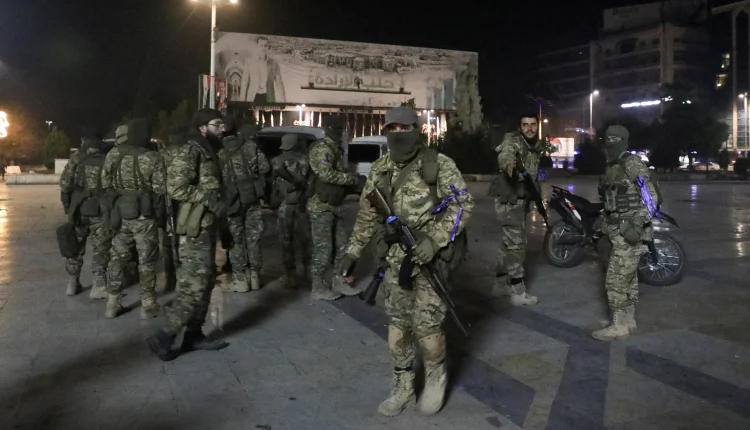HTS Leader al-Jolani Urges Iraq to Stay Neutral Amid Intensifying Syrian Conflict
DAMASCUS, Syria (North Press) – The leader of Hay’at Tahrir al-Sham (HTS), formerly known as Jabhat al-Nusra, called on Iraq to refrain from intervening in Syria’s ongoing conflict. In a video released Thursday on social media platforms, Abu Muhammad al-Jolani directly addressed Iraqi Prime Minister Mohammed Shia’ Al-Sudani, urging him to avoid escalating the situation.
The statement comes amid significant military developments in northern and central Syria, where HTS and Turkish-backed factions have launched a major offensive against Syrian government forces. Over the past week, this offensive has resulted in HTS capturing Hama and Aleppo, two key Syrian cities, marking a critical shift in the balance of power.
HTS Advances in Syria
HTS and its allies have made rapid gains, with al-Jolani confirming in his message that his forces had taken full control of Hama, the fourth-largest city in Syria. This achievement follows the Syrian Ministry of Defense’s announcement of a complete withdrawal from the city, citing the need to protect civilians and reposition its forces strategically.
The loss of Hama, a major urban center and a vital hub for Syrian government logistics, represents a significant blow to Damascus. Combined with the earlier fall of Aleppo, the Syrian government faces increasing challenges in maintaining control over its territories amid growing opposition momentum.
Concerns About Iraqi Involvement
Al-Jolani’s message explicitly criticized reports of Iraqi Popular Mobilization Forces (PMF), known locally as Hashd al-Shaabi, entering Syrian territory to support government forces.
“We urge Iraq to remain neutral and not to interfere in this conflict. The battles in northern Syria will not spill over into Iraqi territories,” al-Jolani declared.
The HTS leader emphasized that Iraqi involvement could further destabilize the region and drew attention to the broader implications of cross-border militancy.
Syrian Government’s Response
The Syrian government has accused HTS of leveraging foreign support to bolster its operations, particularly through Turkish-backed factions. In response to the rapid advances, Damascus has ramped up calls for international and regional backing to counter the opposition forces.
Syrian analysts speculate that Iraq’s PMF deployment, if confirmed, could escalate the conflict into a wider regional confrontation. Reports of PMF movements have yet to be verified independently, but their potential involvement underscores the broader complexities of the Syrian conflict, which has drawn in actors from across the Middle East.
Regional Implications
Al-Jolani’s appeal to Iraq highlights the interconnected nature of Middle Eastern conflicts, where sectarian, political, and strategic interests often overlap. While the HTS leader framed his message as a call for de-escalation, critics argue that his forces’ military actions contribute to regional instability.
The situation in northern and central Syria remains volatile, with humanitarian organizations warning of dire consequences for civilians caught in the crossfire. Displacement continues at an alarming rate, with thousands fleeing active combat zones in search of safety.
International Observations
As HTS consolidates control over strategic areas, the international community remains divided on its approach to the group, designated as a terrorist organization by the United Nations. Regional powers, including Iraq, now face increased pressure to clarify their positions in light of HTS’s growing influence.

